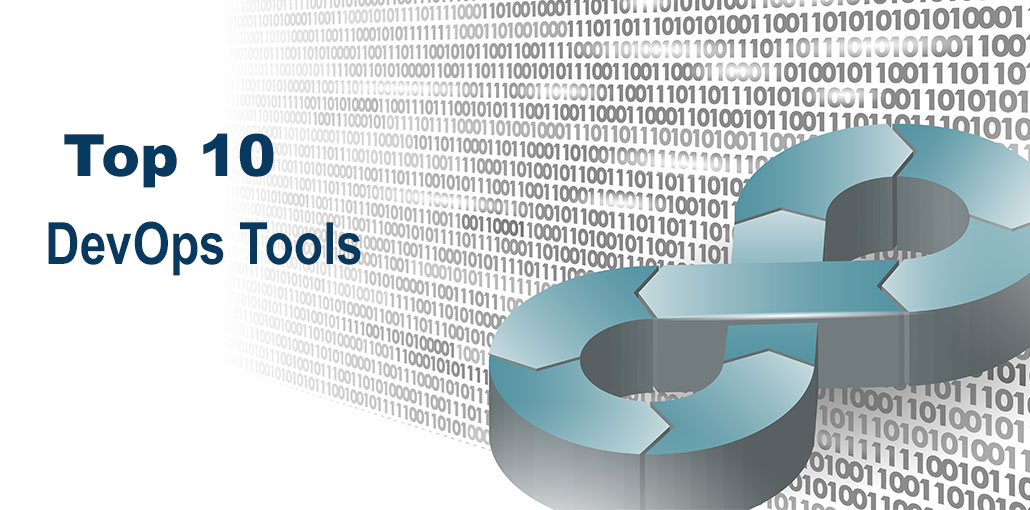DevOps can be described as a process, not a tool. However, tools are required to implement it. It is difficult to break down barriers of communication and create trust among all teams involved in the delivery of software and technology. Automation and integrations across functional teams can be made seamless, transparent, and scalable with the right DevOps tools.
This article will focus on the top DevOps tools for automation, CI/CD, and orchestration. It will also give you a list of our Top 15 DevOps tools for 2023.
How to Choose the right DevOps tools
DevOps cannot be ordered in a box. There is no one tool or vendor that can support all aspects of a DevOps team. There are a few key points to remember when selecting tools and products that will best suit your company’s specific DevOps goals. These goals will vary depending on the environment, structure, and operations of your organization.
There are some things you should keep in mind when choosing the right tools to fit any project or organization.
- Application and technology infrastructure — What are your software/application platforms? Which infrastructure technologies are used to power these platforms? Is the tool compatible with applications or infrastructure hosted in the cloud, local, hybrid, or hybrid environments?
- Developer process Integration — Does the tool work with your existing development tools, IDEs, and/or project management platforms?
- Open and broad integration — The tool can be integrated with other DevOps pipeline technology such as:
- Testing frameworks (e.g., Selenium, TestNG, Jest, JUnit, Mocha, etc.)
- Communication platforms (e.g., Slack, Teams, etc.)
- Systeme for project management (e.g. Jira)
- CI & CD (Jenkins CircleCI, GitHub).
- Scalability — Make sure that your team is able to use the tool easily and that it can scale with your company’s growth.
- Licensing vs. cost models — Does the tool have an open-source license or a commercial license? Be sure to look at the costs of licensing. While free tools are often available, they can be costly in terms of the cost of licensing and the time required to maintain them. Is the product licensed per seat or per tick? A simple and straightforward licensing process combined with an honest approach towards non-license-related operational expenses makes planning easier. This will make it possible to roll out your DevOps pipeline across teams and projects.
Also read: Agile vs DevOps: What is The Similarities & Differences
Top 15 DevOps Tools
1. Katalon TestOps
Katalon TestOps is an orchestration tool that combines test management, planning, and execution with quality analytics. TestOps provides instant feedback loops that can be acted upon and are insightful for both the QA and product teams.
Highlights:
- Simple UI with reporting-centric capabilities
- Integration with most popular testing frameworks/tools like Selenium, TestNG and Katalon Studio is seamless CI/CD systems (Bamboo, Jenkins, Azure DevOps, CircleCI, etc.) Environments (Kubernetes Dockers Kobiton, etc.
- Integrations with management platforms such as Jira, Slack, SDK, or REST APIs can boost team collaboration.
- You can get real-time data monitoring, customizable alerts, and prompt action on any emerging issues
- Shareable dashboards provide a complete picture of the quality and metrics that are most important to your team.
- Rich execution reports that include HAR files, videos, and screenshots.
2. Kubernetes
Kubernetes is open-source DevOps software for automating the deployment, scaling, and management of containerized apps is available. It schedules workloads onto compute clusters and actively manages them to make sure that they are in line with users’ intent.
Highlights:
- You can run anywhere: hybrid, on-premise, or public cloud
- Automated rollouts and rollbacks
- Load balancing and service discovery
- Storage orchestration
- Helm charts for multiple projects that use the same custom applications
- The largest community of container orchestration tools
3. Docker
DevOps teams can create, ship, and manage container-based distributed applications using the Docker technology stack. This platform allows enterprises to create applications, exchange container images and collaborate with users. It also allows them to build programs using components.
Highlights:
- It provides a consistent, isolated environment that is cost-effective because of its rapid deployment, trial run, and rollback capabilities.
- Package applications can be run in multiple environments, including on-premise, AWS, Azure, and Google.
- Image management is made easy with a private registry to store, manage and configure image caches. A public registry allows you to share and collaborate with your users.
4. Katalon Studio
Katalon Studio is an all-in-one, low-code test automation tool that works on the web, API, mobile, and desktop (Windows). It’s a popular choice to replace self-built frameworks and reduce the time spent creating, running, maintaining, and reporting on automated tests.
Highlights:
- Low-code and scripting testing modes, Record & Playback, built-in keyword libraries, drag and drop, and Script Mode (Java & Groovy support)
- AssertJ supports fluent assertions in BDD style
- Data-Driven Testing (Excel CSV, PostgreSQL MySQL, Oracle SQL Server, SQL Server, PostgreSQL) and parallel execution to provide a wider coverage
- Various testing report formats (HTML, PDF, CSV, JUnit, etc.) You can also use Report History to track and store results over time.
- For stress-free maintenance, there is a built-in Debugging Mode and Test Artifact/Desired Capabilities Sharing.
- Native CI/CD (Azure DevOps, Bamboo, Bitbucket, CircleCI, Jenkins, GitHub Action, GitLab, etc.) Integrations with ALM (Jira).
- Import projects from Selenium IDE and Selenium IDE. Swagger 2.0 & 3.0. Postman. WSDL.
Katalon Academy offers free test automation courses and tutorials
5. Ranorex Studio
Ranorex Studio allows you to automate the testing of desktop, mobile, and web applications. The tool is easy to use for beginners, but powerful enough for professionals thanks to its reliable capture and replay tool, drag-and-drop UI objects, as well as code modules that allow for keyword-driven testing.
Highlights:
- You can access the Ranorex core automation framework in C# or VB.NET from within your development environment.
- To view test results and track project progress, you can use the extensive XML-based report
6. Jenkins
Jenkins is a Free DevOps tool that monitors repetitive tasks. Because of the many plugins that can be used to automate any project, it is one of the most powerful tools for software deployment.
Highlights:
- A simple GUI allows you to view code branches and builds through a clean interface
- Give a detailed history of the construction and where any errors may have occurred.
- +2,000 plugins simplify configuration and customization to suit specific needs.
7. Azure DevOps
Azure DevOps, a Microsoft platform, enables software development and deployment using an end-to-end DevOps toolchain. It integrates with a majority of industry-leading tools making it an excellent choice for orchestrating the DevOps toolchain.
Highlights:
- There are many connectors, extensions, and integrations available.
- Integration of Office 365 (Teams and SharePoint)
- Numerous training/documentation resources, and a sizable user community
- Integration of IDE with MS Visual Studio
- End-to-end capabilities, from IDE to cloud execution
Also read: Top 10 React Development Tools and Software
8. Ansible
Ansible is the most preferred DevOps tool to orchestrate, automate, configure, and manage IT Infrastructure. Ansible’s DevOps benefits include the ability to scale and respond quickly to changing demands.
Highlights:
- More than 750 modules are available to automate, configure, deploy, and manage the IT infrastructure.
- The agentless system allows for simpler management and storage
9. Chef
Chef allows users to express security policies and infrastructure as code. This makes it possible to modernize any application’s development and packaging.
Highlights:
- You can deploy simple or complete system changes to large groups of servers without any human interaction
- Support a broad range of technologies, including difficult-to-automate legacy desktop applications.
10. Jira
Jira is a popular platform for managing projects and tracking issues. Jira can be used as a SaaS or on-premises solution.
Highlights:
- Agile software development using Scrum and Kanban boards
- The drag-and-drop interface is used to create automation rules
- To automate your workflow, integrate Bitbucket with GitHub and Microsoft Teams.
Last Line – Top DevOps Tools
Before you can choose the right DevOps tool, you need to evaluate the current development process, requirements, strengths, weaknesses, maturity, and maturity. Consider the interoperability of tools provided by multiple vendors. To ensure seamless operations, it is recommended to use an integrated suite.










Leave a comment